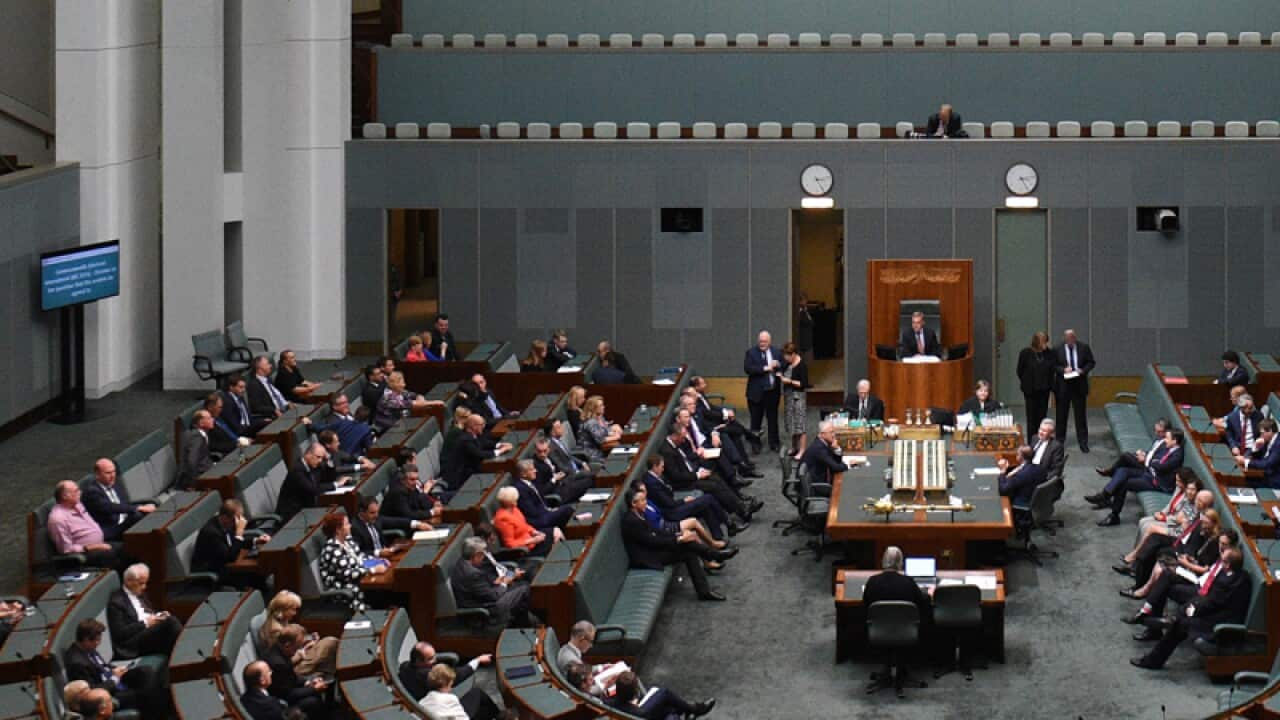Even though it is not yet official, the 2016 election is all but set for July 2. The election will be a double-dissolution poll on the basis of the Senate’s refusal to pass the government’s bill to re-establish the Australian Building and Construction Commission.
Prime Minister Malcolm Turnbull is clearly of the view that an election fought on the matter of union behaviour suits his party’s strategy.
The graphic below shows the marginal seats by state. Three things are immediately apparent:
- New South Wales has the largest collection of ultra-marginal seats;
- Tasmania also has a crucial mass of very marginal seats; and
- the margins on many of these seats tend more towards 2-3% rather than under 1%.
Labor’s hopes for the 2016 election have been buoyed by indicators of a decline in popular support for the Coalition government and, to a lesser extent, for Turnbull himself.
Soon after ascending to the leadership, opinion polling indicated that Turnbull and his government enjoyed a surge in support. Turnbull probably should have gone to an early election at that point. But, for whatever reason, he decided instead to allow a series of ultimately fruitless “debates” to occur over taxation, wages policy and federal-state financial relations.
These poorly handled debates, and some internal instability instigated by supporters of the deposed leader Tony Abbott, have contributed to the government’s falling popularity.
The decline in the government’s position in the opinion polls, however, has not been so extensive as to constitute a sign of imminent defeat. There has been a swing back to Labor since Turnbull’s ascendancy, and Labor looks like it will improve its position from the last election.
Labor’s rise will be due more to the fact that its defeat in 2013 was so bad that a recovery in its vote and representative numbers was inevitable. Labor could hardly have performed more poorly than it did in 2013. The polls are not indicating anything more than a slight correction on 2013.
This theme is emphasised when the data is broken down by state. Both Newspoll and Ipsos find a recovery in support for Labor in every state, but not to any particularly significant level – with the exception of Western Australia.
The problem for Labor is that Western Australia has few marginal seats. Support for the Liberal and National parties has fallen since the election – but not by much. However, Ipsos finds a dramatic fall in support in Western Australia and South Australia.
More importantly for the Coalition, support in NSW and Queensland remains quite strong. Of the 20 most marginal seats, three are in Queensland and seven are in NSW. The additional seats that Labor would need to win to secure a majority are also in NSW and Queensland. These are the two battleground states in which primary support for the Coalition is much stronger than it is for Labor.
The prospect of an equal outcome in the House of Representatives (a “hung parliament”) can’t be entirely discounted, although traditional political science views equal outcomes in single member electoral district elections with plurality (that is, majoritarian) voting as improbable. In theory, such systems should reward parties winning a majority of the vote an exaggerated majority.
This is the norm in Australian elections. But, as 2010 showed, “hung” parliaments are possible. It is likely that there will be a crossbench after the 2016 election made up of at least one Green (Adman Bandt in Melbourne) and independents Bob Katter (Kennedy), Cathy McGowan (Indi) and possibly Andrew Wilkie (Denison).
This would be a handy enough collection of crossbench MPs. There could be more if Tony Windsor is elected in New England, and if Nick Xenophon’s party upsets traditional voting alignments in South Australia. Both Newspoll and Ipsos have indicated severe weakening of support for the major parties in that state, thus adding another degree of difficulty to the contest.
The swings against the Coalition occurring in the polls are in states with comparatively few seats or, in the case of Victoria, comparatively few marginal government seats. Queensland and NSW are the key battlegrounds and, so far, the polls are indicating that the Coalition vote is holding up.
With the writs for the new election still to be issued and the campaign yet to be in full swing, opinion polls are indicating that the Coalition will be returned with a reduced majority. Nick Economou does not work for, consult, own shares in or receive funding from any company or organization that would benefit from this article, and has disclosed no relevant affiliations beyond the academic appointment above.
Nick Economou does not work for, consult, own shares in or receive funding from any company or organization that would benefit from this article, and has disclosed no relevant affiliations beyond the academic appointment above.










